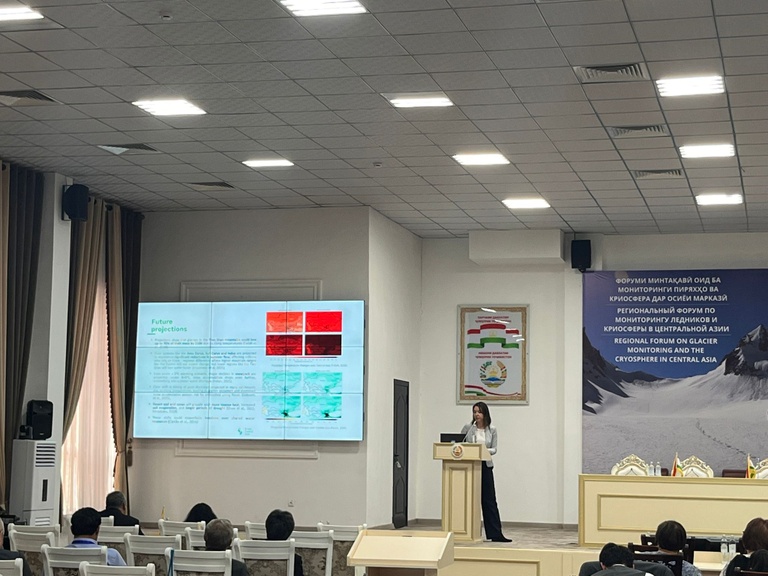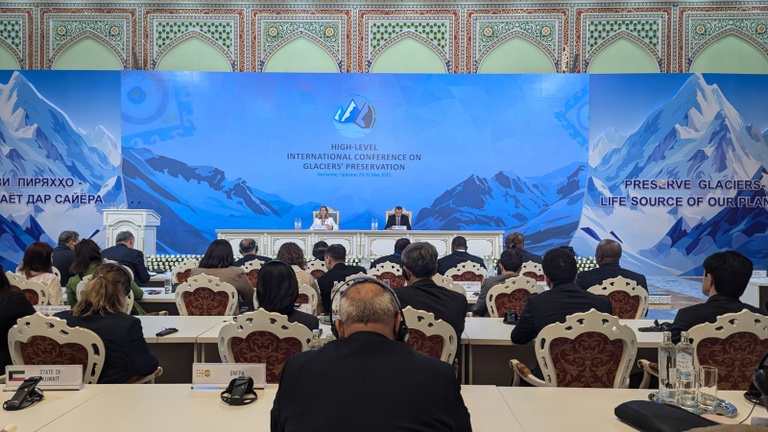
On May 29, 2025, the regional forum on glacier monitoring and the cryosphere in Central Asia took place ahead of the high-level international conference on glaciers’ preservation. The event was organized by the Agency for Hydrometeorology of Tajikistan with strong support from GIZ, in collaboration with Green Central Asia, UNESCO, and the Swiss Agency for Development and Cooperation (SDC).
The forum brought together a broad alliance of regional and international actors to discuss how climate change is affecting the cryosphere and its implications for water, ecosystems, and livelihoods throughout Central Asia.
Representing the CLIMPACT project at the Potsdam Institute for Climate Impact Research (PIK), Stefanie Wesch and Dr. Iuli Didovets participated in the forum.

Stefanie Wesch contributed to the session titled "The Cryosphere as a Key Water Source" with a presentation on "Climate Impacts Online: Visualizing Climate Futures for Central Asia and Beyond." She shared insights on the socio-economic impacts of glacier melt, including challenges such as water scarcity and agricultural risks. Her presentation showcased digital tools, such as PIK’s ClimateImpactsOnline, which support climate-smart planning and regional resilience.

Dr. Iuli Didovets participated in the session "Responding to Cryosphere Changes in Central Asian Countries" with a presentation titled "Towards a Sustainable Future of Central Asia – Key Insights from Our New Book on Climate, Resources, and Human Security." He highlighted important findings and policy takeaways from the upcoming book published by the CLIMPACT project
CLIMPACT thanks the Agency for Hydrometeorology of Tajikistan and Hydromats Tajikistan for organizing the forum, and expresses appreciation to GIZ for their generous support.





